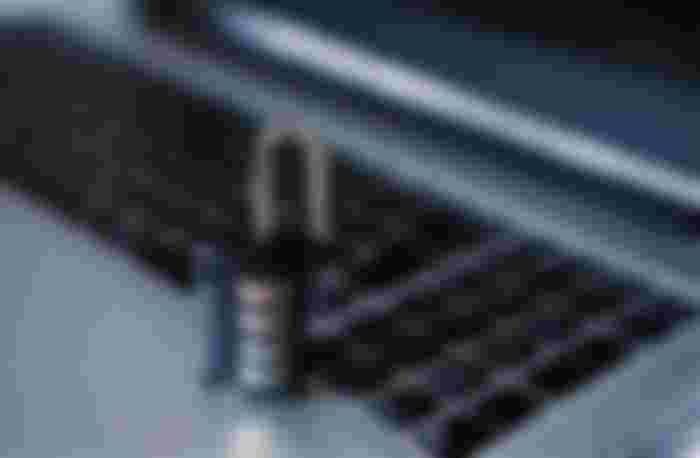Article written by Tiago Hands
Are you thinking about getting rid of piles of receipts and invoices? Do you need assurances as to why you should digitise your bookkeeping? In this article I will be providing you with 5 reasons why you should digitise your bookkeeping. I have gone down this route myself and I have no regrets about my decision. I haven't looked back for the past four years.

Image by: Ag Ku, Pixabay
1. Save Storage Space
At home you may have plenty of folders containing receipts, invoices and bank statements. By law keeping such documents for a certain amount of time may be necessary, however, in some countries - having their digital copies might be enough. If you live in a country that allows you to keep your bookkeeping records 100% digital, you can get rid of all the physical copies of your receipts, invoices and bank statements by scanning them, or, saving them as PDFs in future. In this case, you will only have to worry about hardware space instead of storage space, and that could save you a lot of money (especially in terms of rent). Please remember though, if you do decide to go 100% digital - make backups and keep your backups safe, whether they are on the cloud or on an SD card. In many countries it is a legal requirement to keep copies of your bookkeeping records safe.
2. Organisation

Image by: ArtTower, Pixabay
Today's computers allow you to create documents and put them in folders in seconds. They also allow you to create spreadsheet files that can be customised and updated with a few keyboard presses and clicks. With spreadsheets, data can be filtered and password protected too, giving you the power to make better financial decisions and at the same time, allowing you to keep your precious numerical data away from prying eyes. I've found that organising my financial data is far easier than it was a few years ago. Computers are just so quick, and with them you can name and label files almost in an instant. Unlike with ordinary physical documents, spreadsheets can be filtered and categorised in numerous ways- and sometimes with time saving automated features. I truly believe that with computers, you can take your organisation to a whole new level. I welcome you to the fast lane.
For a comprehensive spreadsheet tutorial playlist, visit the link below:
https://youtube.com/playlist?list=PLFM03zQeSz2Nt0Tg8HtCjdY683hJ6mauj
3. Easy Copying + Pasting

Image by: Free-Photos, Pixabay
When your files are digital they can easily be copied and pasted. It would take hours to back up or create a copy of a folder with hundreds of physical receipts. If however your receipts are simply PDFs stored as 0s and 1s, the same job can be done in a matter of seconds. Of course there is security and encryption to think about, but these sorts of things are less of a headache (in my opinion). Thanks to being 100% digital, I am able to easily transfer or copy years of financial data at lightning speed. As it is a legal requirement for me to keep backup copies of financial records, because the taxman might want to have a look at them, I find this very useful. If I was ever asked by the tax authority to provide financial information, I'd probably be able to email it to them, and yes, everything would be encrypted and password protected.
4. Easy to Switch Accountants

Image by: Gerd Altmann, Pixabay
When your financial data is digital it is easy to switch accountants. Let's say you're not happy with an accountant or you're being charged too much. In the olden days you'd have to go and collect all your folders and files then transport them to a new accountant. Thanks to today's technology, that is not the case. Switching accountants can be as easy as sending an email. Not only that, if your data is organised in spreadsheets, that makes their lives a whole lot easier saving both you and your accountant time and money. The accountants that I deal with love working with me because I make everything so easy to find, analyse and organise. My bank statements are in one folder, my invoices are in another and my receipts have their own separate place. They are also connected symbiotically to spreadsheets.
5. Security

Image by: TheDigitalWay, Pixabay
With physical documents, if someone breaks into your home, they can access them. Even if your documents are stored in robust filing cabinets - it is still possible for thieves to get hold of your data. Added to the possibility that a home or office can catch fire - physical documents could easily disappear from sight or get damaged. With today's encryption technology and the possibility of storing files in multiple places electronically - it becomes far harder for financial data to disappear and harder for prying eyes to view sensitive information. If you use the right methods to backup your data and also encrypt your financial records, it is likely that everything will be more secure. Financial records can be extrememly valuable - because they can be used to forecast the future and also make business plans. Losing such records could have devastating consequences.
Notice:
I hope you've found this article useful. If you do decide to digitise your bookkeeping, I urge you to be very cautious. Make sure you are following the laws set out in your country. If in doubt, speak to a professional accountant or authorised financial advisor. Also, ensure you are using a safe and secure backup procedure. Do use the strongest encryption.
This article contains the main reasons why I digitise my bookkeeping, however, my personal opinions might not apply to your circumstances and needs, therefore this article is not financial advice. Think of my wording as for entertainment purposes. Also, the contents here are not an incentive to invest in any financial products. Use the information here at your own risk. Running any business or dealing with finances can be risky. It is commonly known that most businesses fail.
For more interesting stuff, follow me on Instagram at: https://www.instagram.com/tiago_hands.




